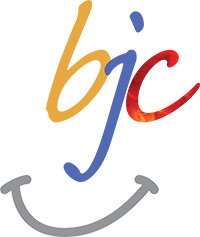Exploring Computer Science (grades 9-10)

Exploring Computer Science (ECS) is a nationally recognized CS curriculum that targets students in grades 9-10. ECS was developed as a curriculum intended for all students. Just as most high school students take courses in Algebra or English, ECS is intended as a general introduction to computer science suitable for most high school students. Participants will have the opportunity to gain hands-on experience in both the content and the pedagogy of the ECS Curriculum. All participants will also have access to resources developed by the PUMP-CS team as well as on-going support for classroom implementation of the ECS curriculum.
Teachers must apply to participate. (See below.) Preference will be given to teachers who teach at a high school that schedules ECS to be offered in the academic year following their first summer workshop.
| PD: | Year-long professional learning. |
| When: | 5-days in summer: normally end of July virtual department meetings and 1-day quarterlies in school year (dates TBD) 2024 July 29 - Aug 2, University of Wisconsin - Eau Claire campus. Apply HERE. 2024 Aug 5 - 9, Marquette University campus, downtown Milwaukee. Apply HERE. |
| Where: | UW-Eau Claire and Marquette in Milwaukee |
| Cost: | Curriculum freely available. Workshop cost is . Scholarships available. |
| Status: | Applications accepted annually from mid-January to June for following July cohort. |
| Future: | Next cohort begins in . |
Beauty and Joy of Computing (grades 10-12)



The Beauty and Joy of Computing (BJC) is a computer science curriculum for high school students. BJC emphasizes the joy and complexity of creating visual computer programs and applications. BJC is balanced with critical reflection on the impacts of new computing technology. BJC is an AP Computer Science Principles course supported by the NSF and endorsed by the College Board and Code.org.
BJC uses Snap! (based on Scratch), one of the friendliest programming languages. It is purely graphical, which means programming involves simply dragging blocks around and building bigger blocks out of smaller blocks. Snap! features first class lists and first class procedures. These capabilities make Snap! suitable for high school students.
BJC is in 100+ high schools across the US and in Europe, Australia and Asia. BJC has been adopted by TEALS nationwide and the New York City Department of Education, the largest school district in the country. BJC is learned by thousands of students online through edX.
BJC follows the AP CS Principles framework with a programming-heavy focus and deep exploration into social implications of computing.
We offer a PD for high school teachers from all backgrounds (no prior CS experience necessary). One week recommended pre-PD work, one week face-to-face and a final online week for any wrap-up needed. Teachers whose schools commit to offer BJC the following year are encouraged to sign up.
| PD: | One week recommended pre-PD work, one week face-to-face and a final online week |
| When: | 5-day online in summer |
| Where: | Online |
| Cost: | Curriculum freely available. Workshop program (5 days) $75 registration fee |
| Status: | The national organization offers PD sessions: https://bjc.berkeley.edu/summer-pd |
| Future: | PUMP-CS is uncertain whether there will be a local cohort in Wisconsin for next year. Please see https://bjc.berkeley.edu/summer-pd for latest information. |
| Note: | Teaching this course requires a CS license (405/1405) in Wisconsin. |
Code.org CS Principles (grades 10-12)







If you are a Wisconsin high school computer science teacher interested in adopting the Code.org curriculum for Computer Science Principles (CSP), apply for the Wisconsin CSP Professional Learning Program.
Curriculum: The College Board's Advanced Placement Computer Science Principles (AP CSP) exam launched in 2017. Code.org is recognized by the College Board as an endorsed provider of curriculum and professional development for AP CSP. Learn more about the curriculum at https://code.org/educate/csp/.
Program Structure: This year-long professional learning program begins with a 5-day summer workshop. During the school year, continuing professional development includes 20 hours of online, self-paced content, and 4 days of in-person Saturday workshops (dates TBD) to be held quarterly.
Requirements: Teachers must be certified high school computer science teachers (405/1405 license), or be prepared to apply for an emergency CS license to teach out of area while working towards the CS license.
AP CSP is an advanced computer science course, primarily intended for 10th, 11th and 12th grade students. While prior course work in CS is not absolutely required, many students will be more likely to succeed if they have had access to introductory courses, such as Exploring Computer Science (ECS) earlier in high school, or CS Discoveries (CSD) in middle school.
Teachers must apply to participate. (See below.) Preference will be given to teachers who teach at a high school that schedules CSP to be offered in the academic year following their first summer workshop.
Costs: The cost of the CS Principles program is
for nine days of workshop.
Full and partial scholarships are available to cover program costs
for many eligible applicants, thanks to generous support from Code.org,
National Science Foundation, and others.
Curriculum materials are freely available.
No special equipment is required,
but typical computers (or Chromebooks) will be needed by students
in the course.
| PD: | Year-long professional learning. |
| When: | 5-day in summer: normally end of July online and local 1-day quarterlies in school year (dates TBD) 2024 July 29 - Aug 2, University of Wisconsin - Eau Claire campus |
| Where: | Eau Claire |
| Cost: | Curriculum freely available. Workshop program (9 days): . Scholarships available. |
| Status: | Applications accepted annually from mid-January to June for following July cohort. Apply at: https://code.org/educate/professional-learning/cs-principles |
| Future: | Next cohort begins in . |
| Note: | Teaching this course requires a CS license (405/1405) in Wisconsin. |

Code.org Advanced Placement CS A (grades 10-12)
If you are a Wisconsin high school computer science teacher interested in adopting the Code.org curriculum for Advanced Placement Computer Science "A" (CSA), apply for the Wisconsin CSA Professional Learning Program.
Curriculum: The College Board's Advanced Placement Computer Science A exam has existed for decades, but in 2022, Code.org launched a new approach to CSA. Learn more about the curriculum at https://code.org/educate/csa/.
Program Structure: This year-long professional learning program begins with a 5-day summer workshop.
Requirements: Teachers must be certified high school computer science teachers (405/1405 license), or be prepared to apply for an emergency CS license to teach out of area while working towards the CS license.
AP CSA is an advanced computer science course, primarily intended for 10th, 11th and 12th grade students. Students normally complete an introductory high school CS course, such as CS Principles or an Introduction to Software Development before taking AP CSA. Most universities recognize the year-long AP CSA course as roughly equivalent to the first semester of an undergraduate major in Computer Science or related field.
Teachers must apply to participate. (See below.) Preference will be given to teachers who teach at a high school that schedules CSA to be offered in the academic year following their first summer workshop.
Costs: The cost of the CSA program is
for nine days of workshop.
Full and partial scholarships are available to cover program costs
for many eligible applicants, thanks to generous support from Code.org,
National Science Foundation, and others.
Curriculum materials are freely available.
No special equipment is required,
but typical computers (or Chromebooks) will be needed by students
in the course.
| PD: | Year-long professional learning. |
| When: | 5-day in summer: dates TBD -- normally end of July online and local follow-ups in school year (dates TBD) |
| Where: | Milwaukee |
| Cost: | Curriculum freely available. Workshop program (9 days): . Scholarships available. |
| Status: | Applications accepted annually from mid-January to June for following July cohort. Apply at: https://code.org/educate/professional-learning/middle-high |
| Future: | Next cohort begins in . |
| Note: | Teaching this course requires a CS license (405/1405) in Wisconsin. |

College-level Data Structures (grades 11-12)

As the number of high school students completing Advanced Placement Computer Science coursework has grown, Marquette University's Department of Computer Science has developed relationships with local school districts and high school CS teachers to offer college-level Data Structures through distance learning technology and Wisconsin's Early College Credit Program.
Marquette ECCP options are available on campus for any high school student who meets the qualifications of the program. Contact your school district for more information.
Marquette's Distance Learning Data Structures option is intended for students who:
- Have completed AP CSA prior to their final year of high school,
- Have ECCP options supported by their local school district,
- Desire a college-transcripted CS course beyond Advanced Placement, and
- Have the support of their local high school CS teacher.
Students enroll in the fall term offering of COSC 2100 - Data Structures with other college students, and participate in the course in real time through synchronous distance learning technology. Your local high school CS teacher provides the outside-of-class support normally available to in-person students through teaching assistant and faculty office hours.
ECCP Distance Learning Data Structures is normally available at Marquette in the Fall semester, and meets Monday/Wednesday/Fridays 11:00-11:50am. Contact us for more information.
